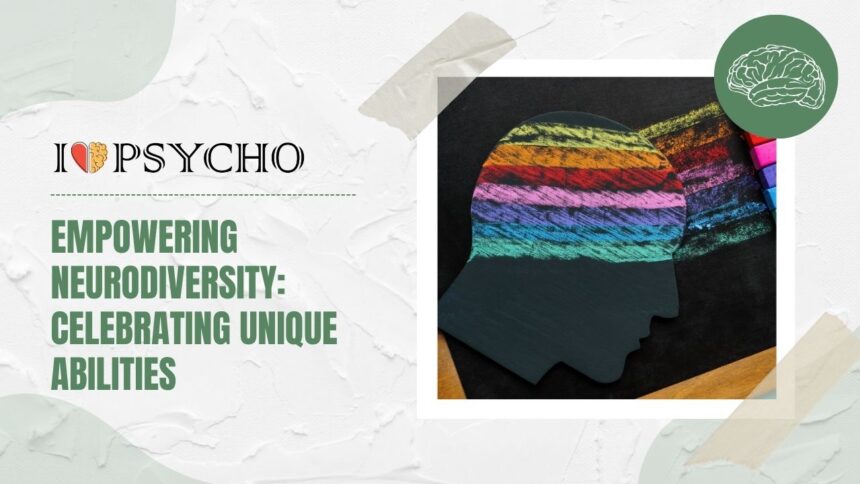Welcome to a world where uniqueness is not only accepted but celebrated – the world of neurodiversity. In this blog post, we will delve into the beauty and importance of embracing diverse abilities, shattering misconceptions along the way. Get ready to be inspired by success stories, learn about support systems, and discover how you can empower neurodiversity in your community. Let’s embark on a journey towards inclusivity and acceptance together!
What is Neurodiversity and Why is it Important?
Neurodiversity is a concept that recognizes and respects the wide range of neurological differences in individuals. It encompasses diverse conditions like autism, ADHD, dyslexia, and more. Each person’s brain functions uniquely, shaping their perspectives and abilities. Embracing neurodiversity is crucial for creating an inclusive society where everyone feels valued and understood. By acknowledging and accommodating different ways of thinking and processing information, we can unlock a wealth of innovative ideas and solutions. It promotes empathy, compassion, and the celebration of individual strengths rather than focusing on perceived limitations. Understanding neurodiversity fosters a culture of acceptance where diversity is not just tolerated but appreciated for its enriching contributions to our world.
Common Misconceptions about Neurodiversity
Misconceptions about neurodiversity can often lead to misunderstanding and stigma. One common misconception is that individuals who are neurodiverse lack intelligence or ability. This couldn’t be further from the truth. Neurodiverse individuals simply think and process information differently.
Another misconception is that neurodiversity only refers to autism. In reality, neurodiversity encompasses a wide range of conditions including ADHD, dyslexia, and more. Each person’s experience with neurodiversity is unique.
There’s also a belief that accommodations for neurodiverse individuals are unnecessary or burdensome. However, simple adjustments like clear communication strategies or flexible work environments can make a significant difference in allowing these individuals to thrive.
It’s important to challenge these misconceptions and promote understanding and acceptance of all forms of neurodiversity in our society.
The Benefits of Embracing Neurodiversity in Society
Embracing neurodiversity in society brings a wealth of benefits that enrich our communities. When we embrace different perspectives and abilities, we foster creativity and innovation. Neurodiverse individuals offer unique solutions to complex problems, bringing fresh insights to the table.
By promoting inclusivity, we create a more welcoming environment where everyone feels valued and respected. Embracing neurodiversity leads to greater understanding and empathy among individuals from all walks of life. It encourages us to celebrate differences and learn from one another’s strengths.Incorporating diverse perspectives into decision-making processes ensures that a wide range of voices are heard. This diversity can lead to more well-rounded outcomes that benefit society as a whole. Embracing neurodiversity fosters a culture of acceptance and appreciation for the incredible diversity of human experience.
Support and Accommodations for Individuals with Unique Abilities
Support and accommodations for individuals with unique abilities play a vital role in creating an inclusive society. It’s essential to recognize that everyone has different needs and finding ways to cater to those needs is crucial. Providing accessible environments, tools, and resources can greatly enhance the overall well-being of neurodiverse individuals.
Offering flexibility in work settings, such as remote options or customized schedules, can help neurodiverse individuals thrive in their roles. Additionally, promoting awareness and understanding among peers and colleagues can foster a supportive atmosphere where everyone feels valued.
Simple adjustments like providing noise-canceling headphones in noisy environments or offering visual schedules can make a significant difference for individuals with sensory sensitivities. Creating clear communication channels and encouraging open dialogue can also ensure that individuals feel heard and respected.
By implementing these support systems and accommodations, we not only empower neurodiversity but also pave the way for a more compassionate and inclusive society.
Inspiring Success Stories of Neurodiverse Individuals
Let’s take a moment to shine a light on the inspiring success stories of neurodiverse individuals. These remarkable individuals have shown that their unique abilities can lead to extraordinary achievements.
One such story is that of Temple Grandin, an autistic professor and advocate for animal welfare. Her innovative thinking revolutionized the livestock industry and inspired countless others.
Another example is Chris Packham, a renowned naturalist with Asperger’s syndrome. His passion for wildlife has made him a beloved TV presenter and conservationist.
Then there’s Haley Moss, the first openly autistic lawyer in Florida who continues to break barriers in her field while advocating for inclusivity and understanding.
These success stories remind us of the incredible potential within each person, regardless of their neurodiversity. By celebrating these achievements, we pave the way for a more inclusive and diverse society where everyone can thrive.
How to Promote Inclusivity and Empower Neurodiversity in Your Community
Promoting inclusivity and empowering neurodiversity in your community starts with education. Taking the time to learn about different neurological conditions can help create understanding and empathy.
Encouraging open communication is key. By fostering a safe space for individuals to express their unique needs and challenges, you are helping to break down barriers.
Advocating for accommodations and support services is crucial. Ensuring that all members of the community have access to resources that cater to their specific requirements can make a significant difference.
Organizing events and activities that promote diversity and celebrate individual strengths can help shift perspectives towards a more inclusive mindset.
Collaborating with local organizations and businesses to implement neurodiverse-friendly practices can set a positive example for others in the community to follow suit.
By taking proactive steps towards promoting inclusivity, you contribute to creating a more welcoming environment where everyone feels valued and respected.
Recognizing and Celebrating Diverse Abilities
In a world filled with unique individuals, it’s essential to recognize and celebrate diverse abilities. Each person brings something special to the table, contributing their own strengths and talents. Embracing this diversity enriches our communities and allows for greater innovation and creativity.
By acknowledging the varied abilities of those around us, we create an inclusive environment where everyone feels valued and respected. It’s important to shift focus from limitations to possibilities, highlighting what each individual can achieve rather than what they may struggle with.
Celebrating diverse abilities means promoting equal opportunities for all, regardless of differences. When we embrace the talents of neurodiverse individuals, we open doors to new perspectives and solutions that benefit society as a whole.
Let’s make it a point to appreciate the beauty in diversity and foster an environment where every unique ability is recognized and celebrated.
Overcoming Challenges and Embracing Differences
Overcoming challenges and embracing differences are essential aspects of fostering a more inclusive society. It’s through facing adversity head-on that we grow stronger and more resilient. Each individual, regardless of their unique abilities, brings something valuable to the table.
It’s important to shift our perspective from viewing differences as obstacles to seeing them as opportunities for growth and learning. By embracing diversity, we open ourselves up to new ideas, experiences, and ways of thinking that can enrich our lives in countless ways.
Challenges may arise when navigating unfamiliar territory or interacting with individuals who perceive the world differently than we do. However, it is through these challenges that we can cultivate empathy, understanding, and acceptance towards others.
By acknowledging and celebrating the diverse abilities present within our communities, we create a supportive environment where everyone feels valued and respected for who they are. Together, we can overcome obstacles and build a more compassionate society where every individual has the opportunity to thrive.
Conclusion: Embracing Neurodiversity for a More Inclusive Society
Embracing neurodiversity is not just about tolerance; it’s about celebration and empowerment. By recognizing and valuing the unique abilities of individuals with diverse neurological differences, we can create a more inclusive society where everyone has the opportunity to thrive. Let’s continue to promote inclusivity, provide support and accommodations, share inspiring success stories, and most importantly, embrace diversity in all its forms. Together, we can make a positive impact on the world by championing neurodiversity and celebrating the incredible talents that make each individual truly exceptional.









